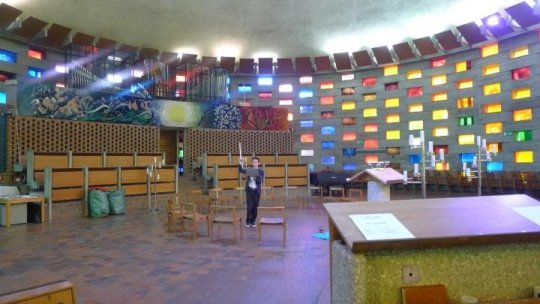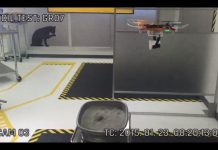[ad_1]
Initial testing on the next generation of mobile technology with the capability of delivering 100 times faster broadband has been successful, engineers at the University of Sussex and collaborators from telecom consultancy firm Plum have confirmed.
Engineering experts are pleased with the successful completion of measurements of the indoor coverage of 5G signals in some of the first tests of its kind carried out in the country at the University of Sussex earlier this summer.
The tests are an important step in establishing the capability and ironing out issues with 5G which is expected to be commercially available as early as next year in the US and by 2020 in the UK.
Professor Maziar Nekovee, Head of the Department of Engineering and Design at the University of Sussex, said that the introduction of 5G had the potential to be far more transformative than the arrival of 4G a decade ago with huge possibilities for industrial automation and Robotics for manufacturing which could deliver a huge boost to UK productivity.
In a in a keynote speech this week at the 5G Industry Summit in Shanghai, Prof Nekovee said: “With phase one of 5G global industry standards just being completed which focuses on 5G enhanced mobile broadband, research is now moving to address 5G technology to support ultra reliable and ultra low-latency connectivity for “vertical industries,” such as automotive and industrial automation. Our research is focusing on these new frontiers of 5G, as well as investigating future deployment by operators, including indoor coverage and spectrum coexistence in newly assigned 5G frequencies in 3.5 Ghz and lower mm-wave bands.”
Customers can look forward to data-rates at least 20 times faster than 4G, with the new 5G wireless technology tipped to help radically speed up roll-out of fibre broadband coverage in the UK which is currently being hampered because of the significant costs of laying cables into millions of homes.
5G Fixed-Wireless Access technology will have the capability of covering multiple homes from mobile base stations placed in residential or rural neighbourhoods with the potential for peak data-rates of up to 1 Gbps.
Dr Falah Ali, course leader of one of the world’s first International Masters in 5G mobile communications launching at the University of Sussex later this year, said: “5G is much more than just evolution to the next generation of mobile communications technology. It will empower new functionalities for people, society and enterprises. It is expected to provide fibre like data rate with massive system capacity and ultra-reliable and extreme real time communications vital for many emerging applications including the Internet-of-things, driverless cars, virtual reality, eHealth, tactile internet, and smart cities.
“5G is going to be the future and it will be here with us very soon and so that is why we here at the University of Sussex are conducting advanced research on 5G to help develop the expertise to deliver its’ full potential. We are also offering a very unique new Masters’ course in 5G mobile communications and intelligent embedded systems to provide up-to-date knowledge and skills vital to the current developments in modern society, and so graduates be well equipped for a wide variety of employment in the industries underpinning these developments.”
Richard Rudd, director at Plum Consultancy, said: “Customers rightly will want assurances about the effectiveness of 5G in a real-life setting and the University of Sussex provides an excellent setting for such a test. The recent tests provided data which is allowing us to model the complicated ways in which the signals interact with buildings and trees, so that indoor signal coverage can be predicted with more confidence.”
The most recent measurements carried out at Sussex were performed at 3.5 GHz, which is the frequency band that was very recently auctioned by Ofcom to UK operators to build their first 5G networks.
In April 2017, the university conducted tests in the millimetre wave frequencies, an ultra-high frequency portion of radio spectrum also allocated for 5G which could offer users data-rates of up to 20 Gbps and is expected to be auctioned by Ofcom later this year.
Story Source:
Materials provided by University of Sussex. Note: Content may be edited for style and length.
[ad_2]















